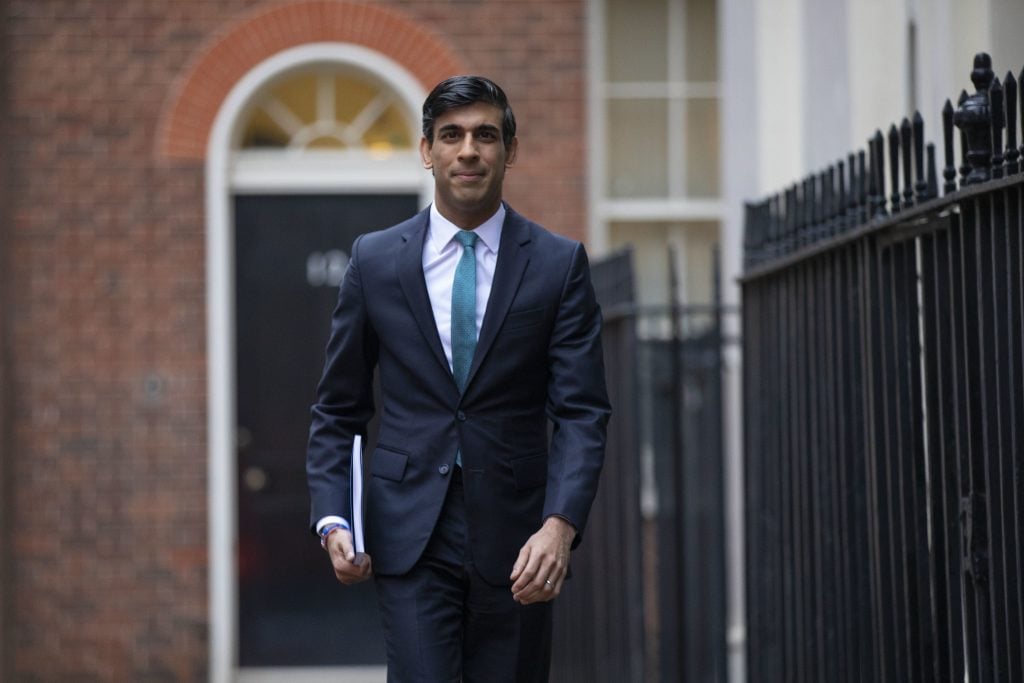Politics
England Has Boosted Its Provision For Culture in the Next Financial Year—But a Public Sector Pay Freeze Has Set Union Reps on Edge
The government spending review has set aside £320 million for the country’s public galleries and museums.

The government spending review has set aside £320 million for the country’s public galleries and museums.

The UK government has announced its highly anticipated spending review, which details how much money it will spend on public services, including museums, over the next financial year. The outcome: a bump for the department that oversees culture spending, but a pay freeze for public-sector workers that has concerned union representatives.
In a speech today, November 25, the chancellor of the exchequer Rishi Sunak offered a bleak picture of UK economy, which has contracted 11.3 percent this year and is not projected to return to pre-crisis levels until the fourth quarter of 2022. The government has said it will borrow 19 percent of GDP this year, which is the highest level of borrowing in peacetime history.
In a normal year, a spending review would plan ahead three or four years to help government departments think long-term, but in a year that has already proven very unpredictable, this review only covers the period of April 2021 through April 2022. Most of the announcements only apply to England, as the government activity elsewhere in the UK (Scotland, Wales, and Northern Ireland) is controlled by the devolved administrations.
Amid provisions for services including schools, defense spending, and overseas aid, the department for Digital, Culture, Media, and Sport will receive a boost to its core funding of 2.3 percent per year between 2019–20 and 2021–22. While the bulk of this increase is going into a major investment in digital infrastructure, it also includes more than £150 million for country’s cultural and heritage infrastructure. Funding for the Cultural Investment Fund and Museums Infrastructure Fund will enable, among other projects, the development of British Library North, the London-based library’s ambitious expansion in the North of England, as well as continued investment in the Heritage High Streets program.
The plan also includes more than £320 million for the country’s public galleries and museums and more than £100 million of capital investment in government-supported bodies working across culture, heritage, and sports.
A spokesperson for one of these bodies, Arts Council England, tells Artnet News that it is still hammering out the details with the government on how these funds will be allocated.
The chancellor also introduced a new £4 billion fund for England to invest in local infrastructure in the regions, including for arts and culture. The director of the Science Museum and chair of the National Museum Directors Council, Sir Ian Blatchford, said in a statement that the council “welcomes Government’s commitment to addressing the capital funding needs of national and regional museums, and we look forward to museums making a major contribution to leveling up through the £4 billion Leveling Up Fund.”
Meanwhile, more than £150 million has been allocated for upcoming cultural events, including £29 million for Festival UK 2022—nicknamed the “Festival of Brexit” after it was announced by the former prime minister Theresa May in the wake of the UK’s decision to leave the European Union. Another £5 million will be spent to start planning the Queen’s Platinum Jubilee in 2022, while £118.5 million has been set aside for next year to prepare for the Commonwealth games in 2022.
Despite promising that the public “will not see austerity” in his provisions for public services, Sunak had warned ahead of time that the UK would soon see an “economic shock laid bare.” The chancellor has decided to freeze wages for public-sector staff (excluding frontline health workers). However, low-wage workers earning less than the median wage of £24,000, which applies to most public sector workers, will get a £250 raise.
Mike Clancy, the general secretary of the Prospect Union, which represents workers in the arts among other industries, says in a statement that the chancellor is “undermining the very people who are the foundation of our public sector” by deciding to freeze public-sector pay.
“While increased spending for some departments is welcome, it is set against the fact that most have faced deep cuts over the past decade,” Clancy says, adding that “if we are really going to recover strongly… the government must address the millions of workers still unfairly excluded from its economic support schemes.”